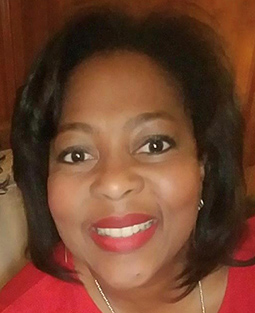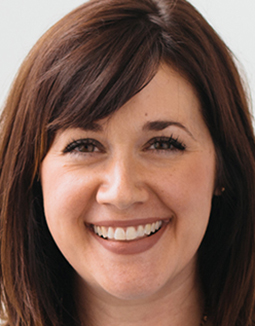Reading books together is a special time for parents and children alike. A program developed in St. Louis that has children’s literature at its heart is sparking conversations among white families about race, racism and related topics.
We Stories was developed in 2015 by two moms, Adelaide Lancaster of Webster Groves and Laura  WashingtonHorwitz of Clayton, who were looking for ways to talk to their children about the events in Ferguson after the death of Michael Brown. The effort grew into a nonprofit organization by 2016 and now includes a 12-week Family Learning Program, library kits with children’s books available through several area libraries and an online discussion group for those who have completed the family program.
WashingtonHorwitz of Clayton, who were looking for ways to talk to their children about the events in Ferguson after the death of Michael Brown. The effort grew into a nonprofit organization by 2016 and now includes a 12-week Family Learning Program, library kits with children’s books available through several area libraries and an online discussion group for those who have completed the family program.
Since its inception, more than 1,000 St. Louis-area families have participated in the Family Learning Program. A national cohort recently was launched and filled to capacity, with another being offered in the fall. A St. Louis-based cohort for the fall also filled up, with another being planned for January 2021. The library kits — which include a collection of children’s books on different themes and discussion guide and other  Vossparent resources — are available through St. Louis County Library, Kirkwood Public Library and St. Charles City-County Library.
Vossparent resources — are available through St. Louis County Library, Kirkwood Public Library and St. Charles City-County Library.
Teresa Steinkamp is a parishioner at St. Cronan Parish in St. Louis and a mother of 5-year-old twins. Her family participated in the Family Learning Program when it began as a pilot in 2016. She now helps with the program as a volunteer facilitator. In her work with college students, she became acutely aware that there were things she didn’t understand about the experiences of black students in particular. In some ways, she’s found the program has challenged and activated her personally just as much as it’s helping her to have conversations with her children.
“It’s given me tools to speak with people better,” she said. “But it’s been important for me to recognize that as an individual, I have to do my own internal work on this as well. I have had to learn how not to just have the tools and words, but also practice stepping outside of my comfort zone, even with people I love dearly, when they say or do things” that are racist.
Steinkamp said she’s also taken seriously Jesus’ call to “love your neighbor” that she learned growing up Catholic, and that Catholic social teaching has served as a guidepost for her. “The primary thing is just recognizing people’s humanity,” she said. “That’s not solely a Catholic belief — we’re all human and deserving of love and compassion.”
The program was designed specifically for white families who feel ill-equipped to have these conversations with their children, said Jenna Voss, a We Stories board member and member of Mary Queen of Peace Parish in Webster Groves. We Stories aligns and partners with black-led organizations who are advancing racial justice work in St. Louis. Several people of color serve as board members and organization advisors as well.
“It’s building a community of people who are raising their hands and are saying, I want to parent differently than how I was raised, which was the color-blind way,” Voss said. “White people have a responsibility to help other white people consume the plethora of media and literature of the black experience, and we need to do our homework before we ask black people to explain everything to us. We have to figure out how to be accountable to communities of color.”
Those who complete the Family Learning Program are called to move from conversation to action. That could be anything from having discussions with schools about racial inequities to getting involved in public policy matters. Voss said that there have been graduates of the program who have run for public office or school board positions, while others focus their efforts within their families and other circles of influence.
Pam Washington, a member of St. Francis Xavier “College” Church Parish, became involved with We Stories through a friend. Washington, a coordinator in the Webster Groves School District, has worked with the University of Missouri Commission, examining the diversity and Title IX programs for the university system. She currently serves as We Stories board vice president, and says the organization’s mission of working with families is “pivotal.”
“We talk to our friends about potty training and other parenting topics,” Washington said. “I feel as though these are some of the same types of conversations we should be having about race — to where it’s embedded in us and natural. Literacy and books are a natural way to have that conversation, and it allows someone else’s voice to join the conversation.”
>> ‘Everyone Belongs’
A children’s fiction book
developed in conjunction with the U.S. bishops and Loyola Press
encourages young readers to reflect on the reality of racism through the
lens of faith.
“Everyone Belongs” tells the story of Ray Ikanga, a
young boy whose family came to the United States as refugees. As Ray
begins making new friends, his excitement is interrupted and the
community is shocked when Ray’s family receives a hurtful message.
Released
in December 2019, the book was developed by the U.S. bishops’ Ad Hoc
Committee Against Racism and Department of Justice, Peace and Human
Development and Loyola Press. The message was inspired by the bishops’
letter, “Open Wide Our Hearts: The Enduring Call to Love.”
It is available for purchase online at store.loyolapress.com/everyone-belongs. Free dowloadable activities also are available at bit.ly/3hnKif3.
>> Some statistics from We Stories
• Babies as young as 6 months stare longer at a face from a racial group different than their own. (Phyllis Katz, 2000-2010)
•
Children as young as 3 make distinctions based on race, even when race
is not discussed (Phyllis Katz, 2000-2010) and start to prefer and
ascribe positive attributes to their own racial group more often.
(Rebecca Bigler, 1993)
• By age three children have already
absorbed the climate of our society in which “middle-class white culture
is presented as a norm or a standard…in terms of appearance, beauty,
language, cultural practices, food, and so on.” (Erin Winkler, 2009)
•
By age 5, children see race as a major point of difference or
distinction, even when it is not discussed. (Phyllis Katz, 2000-2010)
•
By age 7, children can accurately reflect social status bias and will
make choices or judgments based on who they perceive as having more
power or privilege. (Bigler, Averhart, & Liben, 2003)
•
Research on family habits indicates that parents of color are three time
more likely to discuss race with their children than white parents. The
majority of white families never or almost never talk about race at
home. (Brown, Tony N., Emily E. Tanner-Smith, Chase L. Lesane-Brown, and
Michael E. Ezell, 2007)
• When we don’t talk about race with our
kids, they fill in the blanks, extrapolating from an often inequitable
and segregated existence filled with racial messages. (Phyllis Katz,
2000-2010) (Brigitte Vittrup, 2006)
• One study showed that when
white children of white parents (who intentionally enrolled in a study
about children’s racial attitudes) were asked “Do your parents like
black people?” 14 percent said “no, they don’t,” and 38 percent said “I
don’t know.” Almost 90 percent of the enrolled parents were very
reluctant or refused to talk directly about race with their children.
(Brigitte Vittrup, 2006)
For more information on We Stories, see www.westories.org.